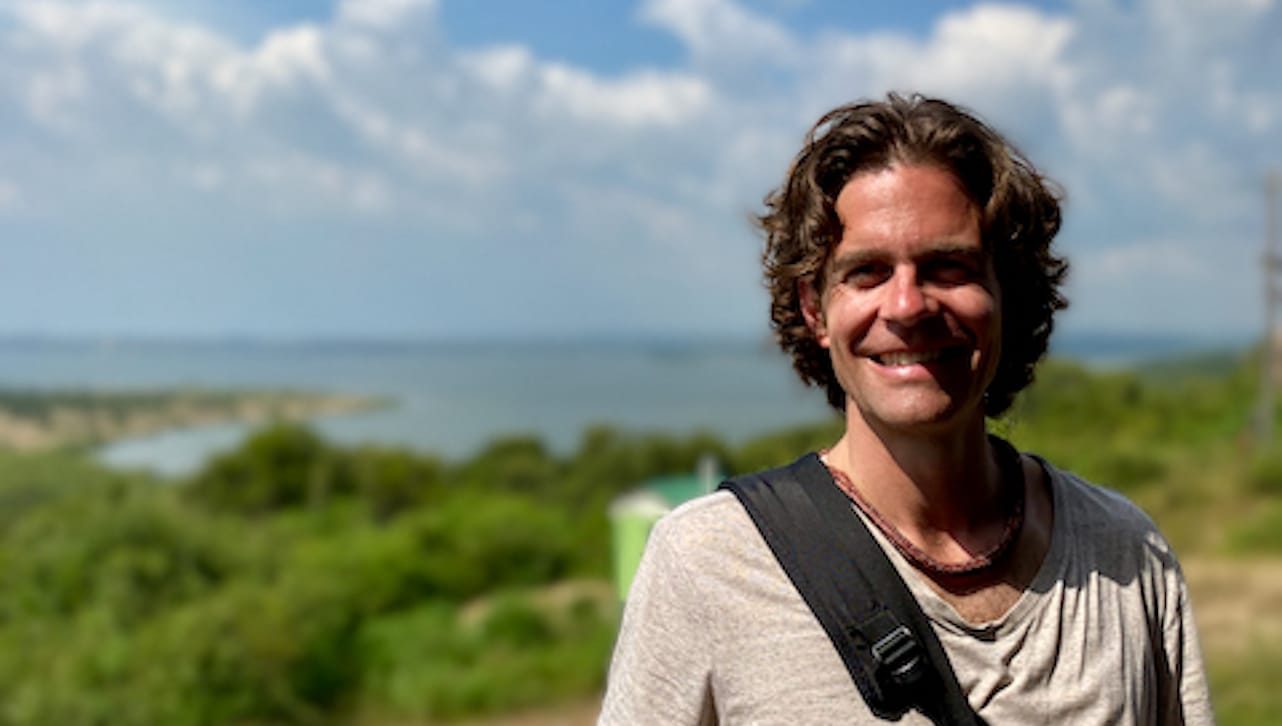Professors Study Impact of Social Network on Health

Cyrus P. Olsen III, D.Phil., associate professor of theology and religious studies at The University of Scranton, is part of an inter-disciplinary team of professors from Brigham and Women’s Hospital and Harvard Medical School awarded a Templeton Foundation Grant. The multi-year grant in the amount of $500,000 funds research on how “social networks” among Ugandans includes one’s ancestors and may influence health-seeking behavior in the context of brain health.
The project (Buffering, Porosity and Brain Health in Uganda) is co-directed by Dr. Olsen and Ian Corbin, Ph.D., Harvard Medical School Faculty and co-director of the Human Network Initiative (HNI), an interdisciplinary research center housed in the Neurology Department of Brigham and Women’s Hospital. The third member of the U.S. research team is Amar Dhand, M.D., D.Phil., associate professor of neurology at Harvard Medical School and principal investigator at the Dhand Lab, a clinical neurology research center specializing in stroke health and social network analytics, where Drs. Olsen and Corbin are clinical observers.
“The research is focused on brain health of people in Kampala, Masaka and Bwindi/Buhoma, three key locations made possible by Scranton’s twenty years of immersive education, created by Robin and Charles Pinches, named the Scranton-Uganda Partnership,” said Dr. Olsen. “It is to Dr. Pinches and his close collaborators, Scott Kellermann, M.D., and Emmanuel Katongole, Ph.D., that the relationship between Uganda and Scranton remains central to the University’s commitment to global education. The present grant is an outgrowth of that relationship.”
Dr. Olsen explained that the Dhand Lab and its subsidiary, HNI, extend social network analytics into the regions of medical anthropology, philosophy, sociology and religion. They are collaborating with the Dhand Lab and HNI to understand how cultural and spiritual factors impact health-seeking behavior.
“Dr. Dhand’s international research reputation with the National Institute for Health, among other grant organizations, remains essential to the project,” said Dr. Olsen.
The research project, titled “Buffering, Porosity and Brain Health in Uganda,” is for the 2022-2025 period. Through the research study, they will collect and analyze empirical data on patient behavior and social connections of 50 participants in Uganda to determine the various ways that “social networks” impact treatment-seeking actions. They will also approach the data collected from a theoretical perspective to develop a theory of the benefits and dangers of viewing humans as “porous,” or readily influenced by outside forces and actors, in the context of healthcare.
“The applied potential of this theory is to support the design of culturally and contextually appropriate brain health interventions,” according to the research grant proposal. Such interventions must be evidence-based and are part of the future of the project after this initial funding period. Their Ugandan research council and collaborators throughout the country will guide the research and ensure local languages and customs are appropriately integrated into all design and project execution.
For this academic year, Dr. Olsen is on leave from Scranton, serving as the LoSchiavo Chair in Catholic Social Thought at the University of San Francisco and a visiting scholar at the Graduate Theological Union, Berkeley. He was named a fellow at the Lonergan Institute at Boston College for the summer of 2022.
At Scranton, he was named an inaugural fellow for the Gail and Francis Slattery Center for Ignatian Humanities for the spring 2021 semester. In 2017, Dr. Olsen received the University’s Excellence in Advancing Interdisciplinary Study Award, which honors faculty members who cross boundaries between disciplines and departments to create innovative pedagogies that enhance students’ learning and prepare them for real-world challenges.
A faculty member at Scranton since 2006, Dr. Olsen has served on numerous committees and led multiple projects during his tenure at Scranton. Most recently, he served as co-director, Health Humanities Concentration. He has published articles in peer-reviewed academic journals and has presented at more than a dozen professional conferences, meetings and workshops, many of which were also peer-reviewed. Additionally, he is a peer reviewer for the National Endowment for the Humanities and a research partner with the Bethany Land Institute for an Esri Geo-information Systems grant to map land use and reforestation in Luweero, Uganda.
Dr. Olsen, received his bachelor’s degree from the University of Washington and both his master’s and doctorate degrees from the University of Oxford.






